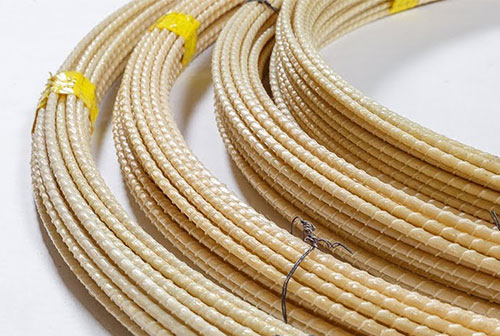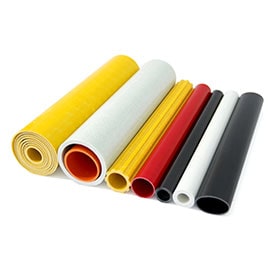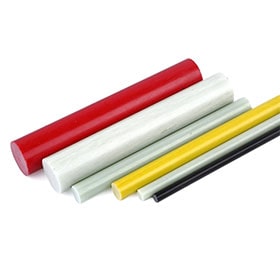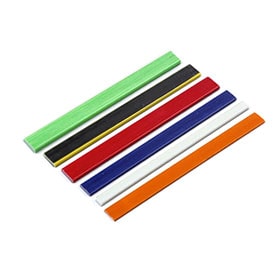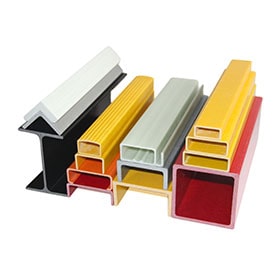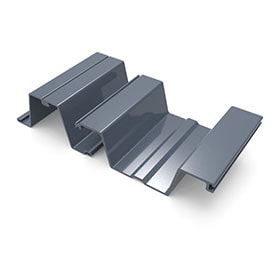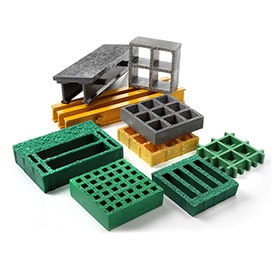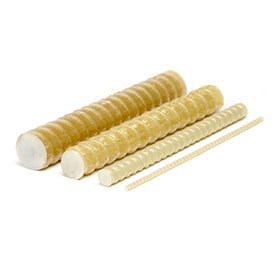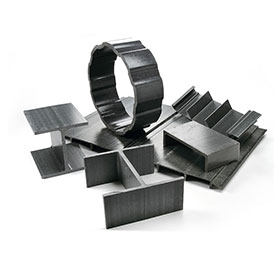In the realm of civil engineering, the battle against corrosion is a constant struggle. Traditional steel rebar, the backbone of reinforced concrete structures, is susceptible to rust, leading to premature deterioration, reduced structural integrity, and costly maintenance. FRP steel bar, also known as fiberglass reinforced polymer rebar, has emerged as a compelling solution, offering superior corrosion resistance and a host of other benefits that are transforming the construction industry.
Understanding FRP Steel Bar:
FRP steel bar is a composite material composed of high-strength fiberglass fibers embedded in a polymer resin matrix. This unique composition provides a remarkable combination of properties that make it an ideal alternative to steel rebar:
Superior Corrosion Resistance: Unlike steel rebar, FRP steel bar is immune to corrosion from chemicals, acids, alkalis, and saltwater, ensuring long-lasting performance in harsh environments.
High Strength and Tensile Capacity: FRP steel bar boasts impressive tensile strength, comparable to or exceeding that of steel rebar, making it suitable for load-bearing applications.
Lightweight: FRP steel bar is significantly lighter than steel rebar, reducing the overall weight of concrete structures, simplifying transportation, and minimizing structural loads.
Electrical Insulation: FRP steel bar is an excellent electrical insulator, making it suitable for applications where electrical conductivity could pose a hazard.
Non-Magnetic: FRP steel bar's non-magnetic properties eliminate the risk of magnetic interference with sensitive equipment or medical devices.
Radio Frequency (RF) Transparency: FRP steel bar allows for the transmission of radio waves, making it suitable for applications where RF signals are crucial.
Applications of FRP Steel Bar:
The exceptional properties of FRP steel bar have made it a versatile material for a wide range of construction applications:
Transportation Infrastructure: FRP steel bar is widely used in bridges, culverts, pavements, and retaining walls due to its corrosion resistance and ability to withstand heavy traffic loads.
Marine Structures: In marine environments, FRP steel bar is employed for docks, piers, seawalls, and offshore structures due to its resistance to saltwater corrosion and biofouling.
Chemical Processing Facilities: FRP steel bar is utilized in chemical processing plants for tanks, pipes, and support structures due to its corrosion resistance to harsh chemicals.
Nuclear Power Plants: In nuclear power plants, FRP steel bar is used for reinforcing concrete structures due to its non-magnetic properties and resistance to radiation.
Medical Facilities: FRP steel bar is employed in medical facilities for MRI suites and other areas where electromagnetic interference must be minimized.
Advantages of FRP Steel Bar over Traditional Steel Rebar:
Unparalleled Corrosion Resistance: Extends the lifespan of concrete structures, reducing maintenance costs and environmental impact.
Lightweight Design: Simplifies transportation, installation, and reduces structural loads, particularly for large-scale projects.
Electrical Safety: Minimizes the risk of electrical shocks and enhances safety in hazardous environments.
Chemical Versatility: Compatible with a wide range of chemicals without compromising integrity.
Radio Frequency Transparency: Enables seamless transmission of radio waves for critical applications.
Non-Magnetic Properties: Eliminates magnetic interference and is suitable for sensitive environments.
Design Considerations for FRP Steel Bar:
Design Codes and Standards: Ensure compliance with relevant design codes and standards, such as ACI 318 (American Concrete Institute) and CSA A23.3 (Canadian Standards Association).
Material Properties: Consider the specific properties of FRP steel bar, such as tensile strength, modulus of elasticity, and bond strength, when designing reinforced concrete elements.
Load Requirements: Accurately assess the load-bearing requirements of the structure and select the appropriate FRP steel bar grade and diameter.
Durability Considerations: Evaluate the environmental conditions and potential chemical exposure to ensure the long-term durability of FRP steel bar.
Installation Practices: Follow proper installation techniques
 +86 15303735673
+86 15303735673 Jessica@frpzs.com
Jessica@frpzs.com
 Technical Data
Technical Data


